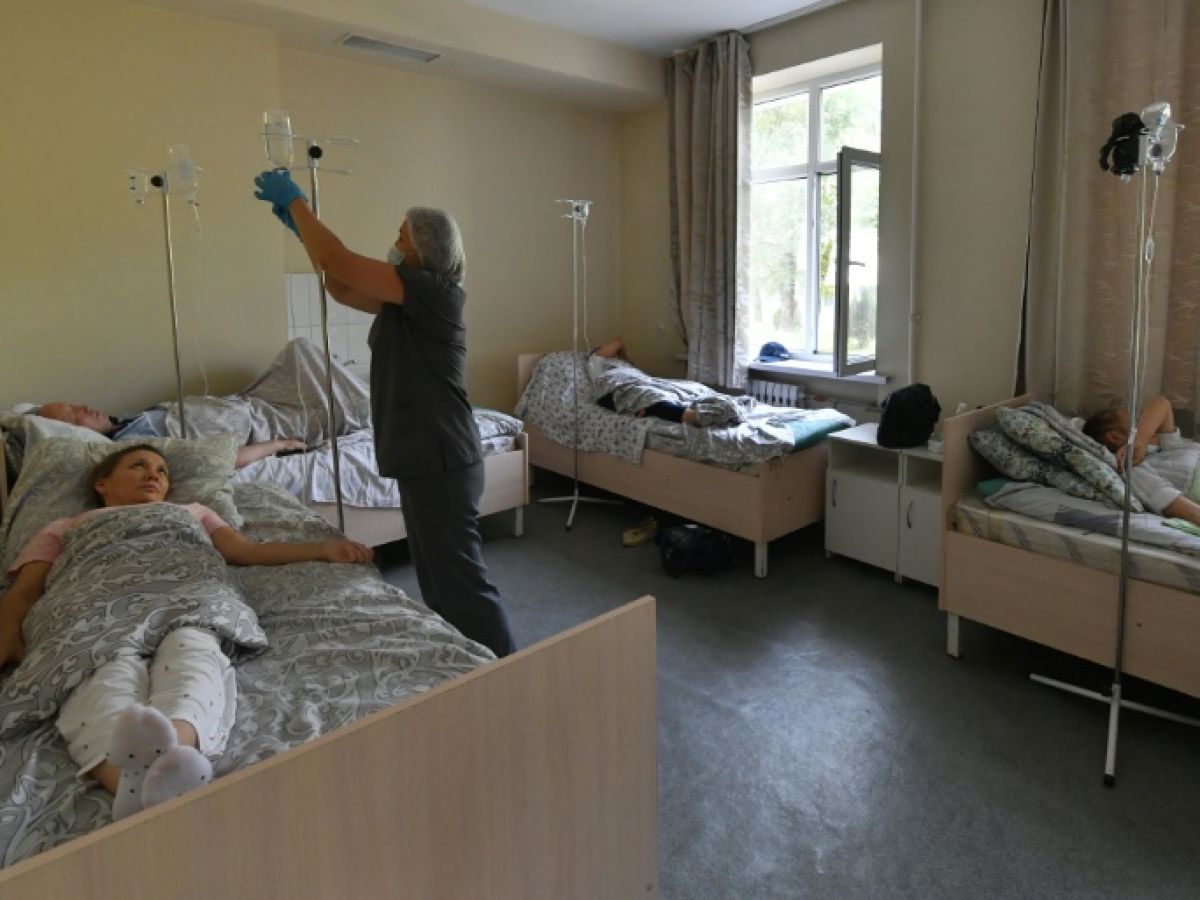"Unfortunately, women are dying because there is a shortage of medicine," says Almagul Ibraeva, who is in remission from breast cancer, bitterly. In Kyrgyzstan, as in all of Central Asia, the difficult search for cures adds to the ordeal of the disease.
After undergoing "removal of her breasts and reproductive organs," Ms. Ibraeva is taking hormone therapy, exemestane. But she "often" has difficulty obtaining it.
"I order it from Turkey or Moscow, where my daughter lives. There are a lot of medications that are simply unavailable. The patient has to look for them themselves and buy them," the fifty-year-old told AFP.
Shortages, high prices and poor quality of medicines for serious and minor illnesses affect the 80 million inhabitants of the five former Soviet republics in Central Asia.
These countries are highly dependent on imports, due to the collapse of local production: even Kazakhstan, the region's leading economic power, has only created two drugs in the last ten years.
Other examples: hepatitis B vaccination in Kyrgyzstan was stopped this spring; in Kazakhstan, 67,000 expired medications were sold in 2024 according to authorities; in Uzbekistan, 69 children died after drinking adulterated cough syrup imported from India in 2023; in Tajikistan, the president regularly mocks "the poor quality of medicines"; and similar problems are reported in Turkmenistan.
- " Misery " -

The sick are often left to their own devices.
"Some sell their houses, their livestock, and go into debt just to survive," says Chayirbu Saguynbayeva, who overcame cervical cancer.
She created a center in Bishkek, the Kyrgyz capital, called "Together for Life," which welcomes women with cancer, where they receive housing and support during their treatment.
"Here, they can organize themselves. When a person receives chemotherapy, they feel bad, and not all relatives can handle that," says Ms. Saguynbayeva.
The women at her center sew and sell items with Kyrgyz national ornaments, which has funded the treatment of 37 patients since 2019.
Although Ms. Saguynbayeva is "grateful" to the Kyrgyz state for "finally starting to provide medicines," it remains "a pittance."

One of the patients, Barakhat Saguyndykova, told AFP that she had received "free anti-cancer drugs only three times between 2018 and 2025."
"And even then, it was entry-level. Before, I took Indian medicine. I paid for the rest myself," says the forty-year-old.
At the National Center for Oncology and Hematology, doctor Ulanbek Turgunbayev acknowledges: "The supply of medicines is a very serious problem for patients."
While he notes "a considerable increase in available drugs," the specialist calls for "focusing not only on drug supply, but on early detection" to "reduce the costs" of therapies.
– “Build orphanages” –
But the shortage of equipment and 5,000 health professionals in Kyrgyzstan means that urgent action is needed.

President Sadyr Japarov has promised to eliminate the medical sector mismanagement that cost the health minister his job last winter.
Although drug factories have finally been opened, as planned in September 2024, to "reduce dependence on imports and lower prices," according to Japarov, the short-term situation remains tense.
According to the Kyrgyz Chamber of Commerce and Industry, "around 6,000 drugs could disappear from the market by 2026" due to failure to be "re-registered according to the standards of the Eurasian Economic Union," an alliance of former Soviet republics, including Kyrgyzstan.
These re-registrations are a long and unprofitable process for manufacturers.
In 2023, the Kyrgyz government created a state-owned company, Kyrgyzpharmacie, which is supposed to "centralize requests from all hospitals and carry out purchases" of medicines to guarantee their availability and limit prices, Talant Soultanov, director of Kyrgyzpharmacie, told AFP.
But this structure is under pressure due to lack of results.
Its leader hopes to "further lower the prices" of medicines "by signing longer-term agreements with suppliers, via group purchases at the regional level" with other Central Asian countries.
But while Kyrgyzpharmacie promises an uninterrupted supply soon, several women in Bishkek are still waiting for medications ordered through the company for months.
Recently, a mother of three children "died simply because she did not receive a medicine on time, which was unavailable for three months," says Ms. Saguynbayeva.
"It's better to save a mother than to build orphanages," she said.

